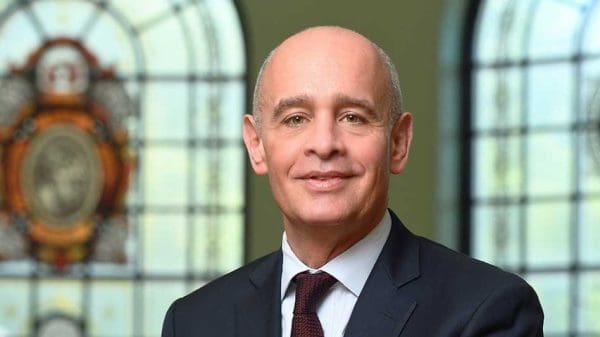
Rarely a day goes by that you don’t run across some mention of “fake news.” Whether it’s a warning about consuming news via untrustworthy sources, a discredited news report, or an accusation of twisted facts, we’ve come to view fake news as both increasingly commonplace and a serious threat to democracy.
While it may feel like a recent development—“fake news” was Collins Dictionary’s Word of the Year in 2017—the term has been around since at least the end of the 19th century. And the phenomenon itself is actually centuries old: This issue’s story “The Art of Faking It” delves into Johns Hopkins’ “Bibliotheca Fictiva,” a collection of literary and historical forgeries—whose contents date back to the 12th century—and the scholarly texts that unmask them.
The collection has spawned a graduate seminar focusing on critical and creative thinking regarding rhetoric, history, and psychology, and a three-day conference that produced a book on literary forgery. And its significance only grows in this age of digital information, helping us to understand how fake news is constructed and to ask the deeper questions about the nature of authenticity, authority, and believability.
Meanwhile, our cover story tackles the digital age and its intricacies from a different angle, as five alumni journalists discuss what democratic societies have to lose and/or gain from recent, and ongoing, dramatic changes in the profession. As the field evolves and adjusts, they write, they and their colleagues try to hold fast to the highest standards and ideals of accuracy and accountability, integrity and quality.
Here at the Krieger School, we hold ourselves to similar ideals in our research and scholarship every day. As a community of researchers across the humanities, natural sciences, and social sciences, we pride ourselves on an uncompromising search for the truth, avoiding the easy roads in favor of those that are often more complicated and difficult—and always more rewarding.
That commitment to truth is both our very foundation and our promise to the future. Part of the education we hope to impart to the next generation of researchers is a similar passion for the challenge of scholarship with purpose, integrity, and perseverance. What we stand for will never go away, regardless of the twists and turns of society, technology, and the media.
One of the many ways these ideas spring to life around campus is through the work of the SNF Agora Institute, which is devoted to strengthening democracy and examining the causes of polarization through dialogue, civic engagement, and the open exchange of ideas. The agora of ancient Athens was the place—explained the institute’s inaugural director, Hahrie Han—where people cultivated the skills of debate and disagreement; tools that are essential to engaging in democratic society.
“What choices can we make now, in the 21st century, to realize democracy’s promise?” asked Han during an international conference held in Athens last summer.
“I hope that … we’re able to push the boundaries of creativity to their limits, knowing that we might take risks, but that those risks are the kind of risks that we need to take to engage the world we have right now, that we’re able to break down the silos that traditionally divide us, [and] that we’re able to integrate research and practice and bring data to bear on some of the most complex questions that we have before us,” Han said.
After all, it’s the very motto of Johns Hopkins: veritas vos liberabit, or “The truth will set you free.”
Sincerely,
Beverly Wendland
James B. Knapp Dean


